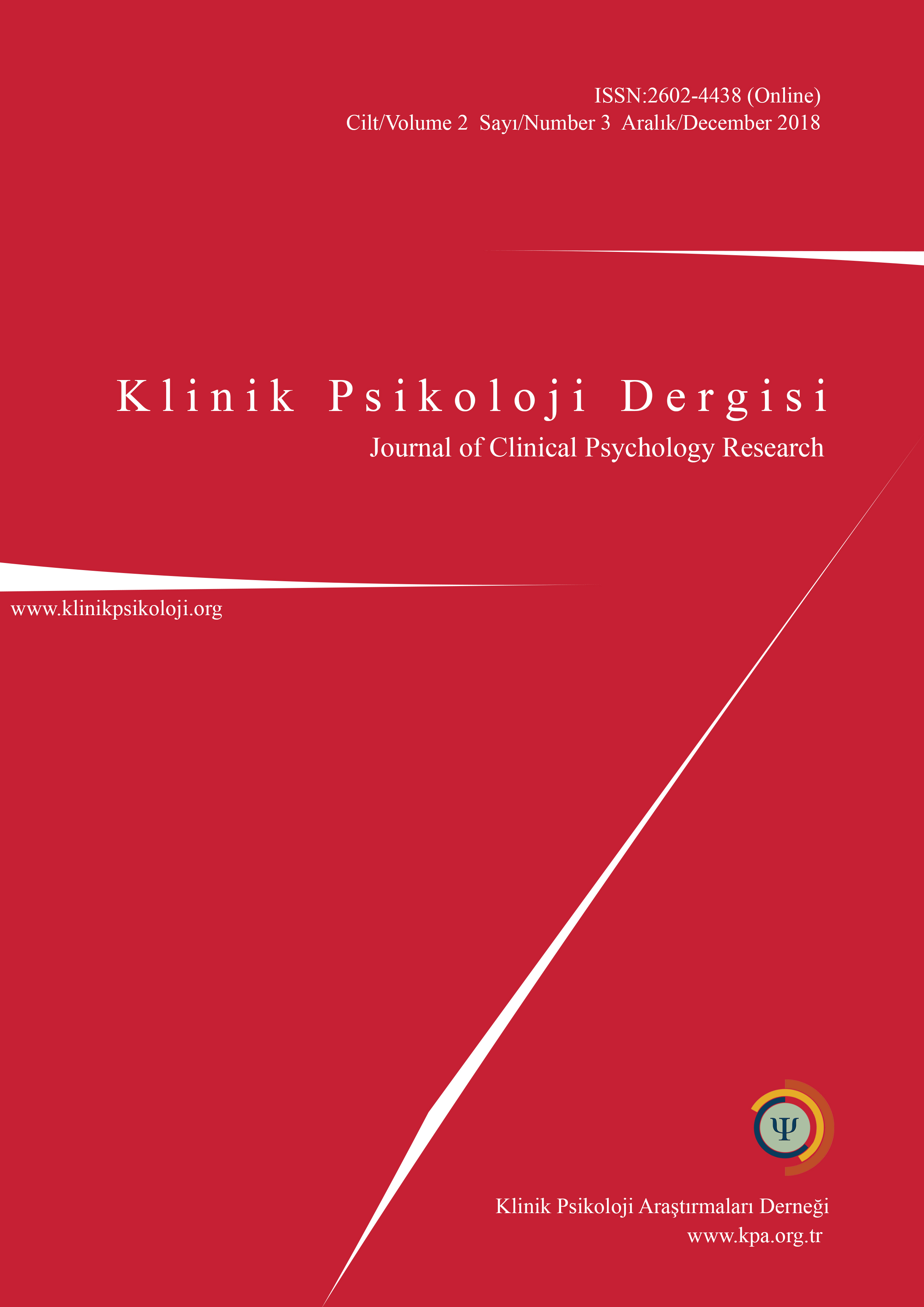Psikoterapistlerin çevrimiçi yürütülen psikoterapilere yönelik algılarına ilişkin bir tematik analiz çalışması
A thematic analysis study on psychotherapists’ perceptions of online psychotherapies
Author(s): Burcu Korkmaz, Gamze ŞenSubject(s): Psychology, Clinical psychology, ICT Information and Communications Technologies
Published by: Klinik Psikoloji Araştırmaları Derneği
Keywords: online psychotherapy; Internet; therapist perceptions; qualitative method; thematic analysis;
Summary/Abstract: The development and growth of technology and internet use has led to the development of a newand increasingly widespread field in psychotherapy practices and mental health interventionsother than face-to-face traditional contexts. The purpose of this study is to assess the perceptionsand beliefs of psychotherapists regarding online psychotherapy processes, which still have a limited usage and literature background in Turkey. The participants of the present study consisted of45 psychotherapists working in various provinces of Turkey, of which 39 (86.7%) were femaleand 6 (13.3%) were male. The obtained data was analyzed using inductive thematic analysis procedure, a qualitative analysis method. According to the findings, perceptions of online psychotherapies of the psychotherapists in our country are grouped under eight different themes. Theseincluded 1) online psychotherapy as a worrisome context, 2) online psychotherapy as an inappropriate context, 3) online psychotherapy as a reserve/conditional context, 4) online psychotherapyas a context requiring specialized education and information, 5) online psychotherapy as a contextprone to misconduct, 6) online psychotherapy as context prone to problems; 7) online psychotherapy as a context with high accessibility; and 8) online psychotherapy as context not differentfrom face-to-face psychotherapy. The findings indicate that, although psychotherapists are awareof the appropriate and facilitating aspects of online therapies, they still refer intensely to theirnegative features. These findings provide insights on how psychotherapies, in both practice andresearch, will change in the future.
Journal: Klinik Psikoloji Dergisi
- Issue Year: 2/2018
- Issue No: 3
- Page Range: 140-152
- Page Count: 13
- Language: Turkish

